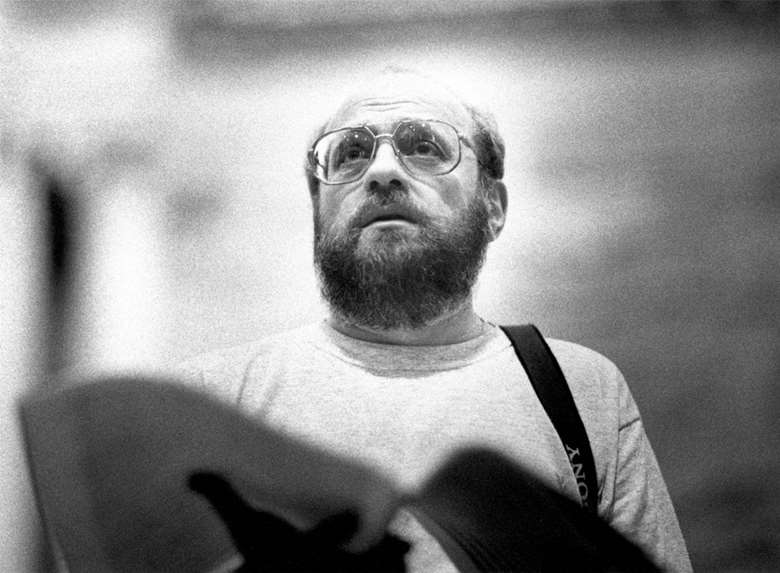The composer Alexander Knaifel has died at the age of 80
Gavin Dixon
Friday, June 28, 2024
Alexander Knaifel was one of the most prominent Russian composers of his generation

The composer Alexander Knaifel has died in Berlin at the age of 80. Knaifel was one of the most prominent Russian composers of his generation, both at home and in the West. He played a key role in redefining Russian contemporary music in the years after the fall of the Soviet Union, bringing religious themes to the fore and pioneering a radical minimalist aesthetic of contemplation.
Knaifel was born in Tashkent in 1943, his musician parents having been evacuated from the besieged Leningrad. Knaifel studied as a cellist, first with Emmanuel Fishman in Leningrad and then with Mstislav Rostropovich at the Moscow Conservatory. A hand injury cut short his cello studies, but Rostropovich remained an important mentor when Knaifel began to compose, commissioning and premiering many works over the following decades.
The opera The Canterville Ghost, completed in 1965 while he was still a student, was a significant early success, demonstrating Knaifel’s distinctive approach to vocal writing. The opera was performed in 1980 by the BBC Symphony Orchestra under Gennady Rozhdestvensky and recorded in Russia in 1990 by Michail Jurowski (now on Brilliant Classics).
An experimental, iconoclastic approach characterised Knaifel’s music of the 1970s, leading to tensions with the Soviet authorities. In 1979, he was officially reprimanded following the premiere in Cologne of an improvisatory piece A Prima Vista. Fewer of Knaifel’s works were performed in Soviet Russia as a result, and so he turned his attentions to film music. He would go on to compose music for over 40 films, several for the celebrated Russian director Semyon Aranovich.
Like many Russian composers of his generation, Knaifel was increasingly drawn to the Orthodox faith in the 1970s, resulting in a series of increasingly expansive and meditative works. A minimalist style emerged, as demonstrated in Vera (‘Faith’, 1980) for two harps, harpsichord and string orchestra, based on simple, modal harmonies, eschewing surface detail and ornament, meditative almost to the point of stasis. This style proved particularly compelling for Rostropovich, who commissioned and premiered a series of religiously inspired works through the 1990s: Chapter Eight - Canticum Canticorum (1993), The Fiftieth Psalm (1995) and The Beatitudes (1996).
Texts, both sacred and secular, inspired and shaped many of Knaifel’s later works, but the words themselves are rarely presented directly. Angus Dei (1985), for example, is a work for four multi-instrumentalists. Each part has liturgical texts and quotations from the diary of a girl who died in the Siege of Leningrad printed under the music, and the musicians are instructed to ‘perform’ them silently. The approach demonstrates Knaifel’s tangential relationship with linguistic meaning but also the central importance of both silence and meditation to his work. Similarly silent words underpin his opera Alice in Wonderland, premiered in Amsterdam in 2001, with Roderick Williams leading the cast. Lewis Carroll’s text guides the work, but is rarely stated, at one point appearing in code as a series of coloured lights against the backdrop.
Knaifel’s music is well represented on records, beginning with a 1988 two-LP release on the Soviet Melodia label of his surrealist song cycle The Silly Horse (1981). A 1995 recording on Teldec, ‘Make Me Drunk With Your Kisses’, presents Chapter Eight - Canticum Canticorum with Rostropovich as soloist, a significant introduction for Western audiences to the atmospheric sound world of Knaifel’s later work. Just as important were a series of releases on the ECM label from 2002 onwards documenting Knaifel’s choral and chamber music. His style proved ideal for the ECM aesthetic, allowing the luminous, meditative qualities of the music to shine through in authoritative accounts from performers including Rostropovich again, and also conductor Saulius Sondeckis, cellist Ivan Monighetti and pianist Oleg Malov.
















